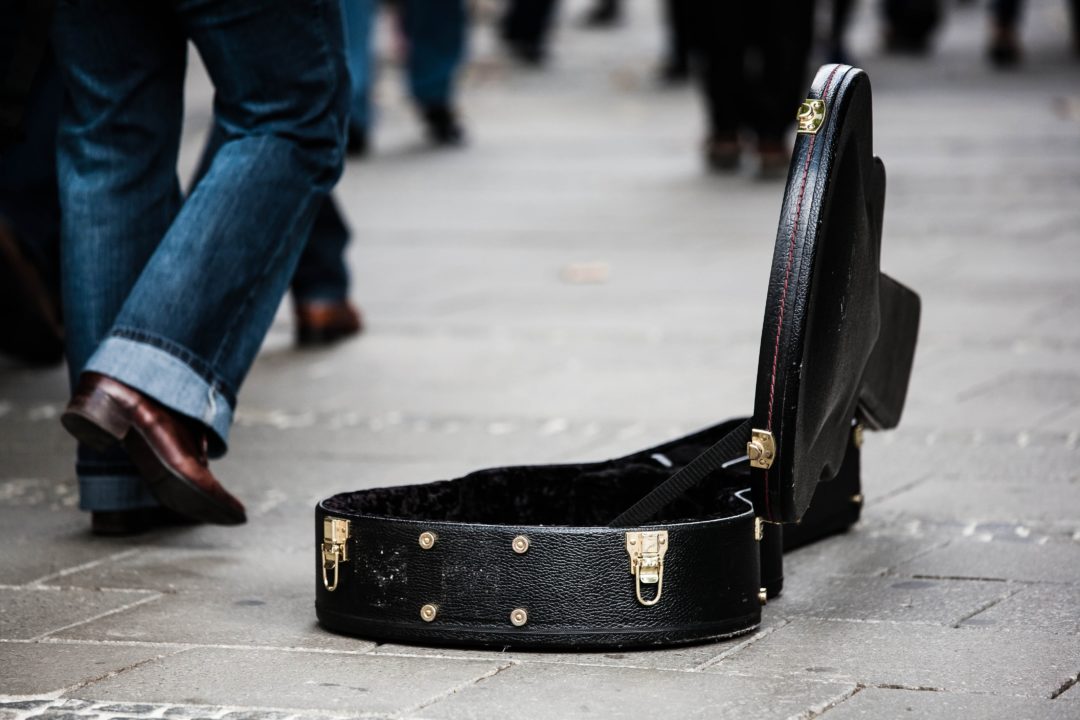
Guitar cases, especially those large, hard cases, can take up a significant amount of space. However, they are necessary to protect your precious guitar collection. In fact, if your collection grows past one or two guitars, storing them and their cases is something you will have to address. Read on for some helpful information on how to store your guitar case or cases.
Things to Consider For Guitar Case Storage
When you are considering what to do about your guitar case storage when you are not playing your instruments, you need to think of the following factors:
- How many guitars do you have? Obviously, the more you have to store, the more space you will need to have or at least you will need to create a rotational storage system of sorts to ensure that your guitars are all protected.
- What is the weather or climate? It’s not a good idea to store a guitar case, even an empty one if a place where temperature and humidity swing drastically. Therefore, even if it’s empty, it’s not good for a guitar case to be stored in an unconditioned basement or garage.
- The space you have available is important when contemplating how to store your guitars and their cases. If you have a bonus room for this, great. If not, you will have to think of some alternatives.
- Budget restraints will also alter what you can do in terms of guitar case storage.
- Value of guitars. Obviously, the more valuable your guitars are, the more important it is to ensure they and their cases are protected and stored properly.
Types of Guitar Cases
There are three basic types of guitar cases, all of which offer their own benefits and drawbacks. The following explains the differences between each type:
- Hard: This is the best type of case in terms of providing your guitar with optimal protection. However, hard cases are heavier and can take up more space than other options. Good hard cases are made with materials such as plastic, wood, metal, fiberglass, or carbon fibers. The inside of a hard case features a soft cushy pad and is lined to protect your guitar from hard shocks and prevent scratches as well as keep out dust and prevent the guitar from being as affected by hazardous elements like high humidity, high temperatures, and more. A hard case with built-in wheels can be a great way to transport a hard guitar case.
- Soft: Also known in the industry as gig bags, soft guitar cases are another way to protect your guitar from the elements. You can choose from a soft case made of nylon, leather, polyester, or some combination of materials. Soft guitar cases usually feature a shoulder strap or even a backpack-style strap.
- Hybrid: This storage option is a combination of both a hard and soft guitar case. In many cases, the exterior of the bag will be soft yet the interior structure surrounding the guitar will be hard or solid. However, the interior will still feature a plush, padded lining.
Storage Options: Guitar Storage Solutions
Storing your guitar cases and guitars can get overwhelming when you have a significant collection. The following are some of the most practical ways to keep those cases and guitars safe while being stored:
- Floor Racks: As the most straightforward and cost-effective way to store guitar cases, you can opt for a floor rack. This is usually made of metal or wood and features poles running horizontally. The floor racks or stands allow you to lean your guitar case into the rack and situate them side-by-side.
- Wall Mounts: This allows you to display your guitars on a wall-mounted system. This can serve to show off your guitars while keeping them safe when not in use.
- Cabinets: If you want to be able to put guitars out of reach and inside something to protect them, you can opt for cabinet storage. You can either tuck them away or have them displayed behind glass-faced cabinets.
Keep all the above information in mind to properly store your guitars and their cases, ensuring they are well protected.
